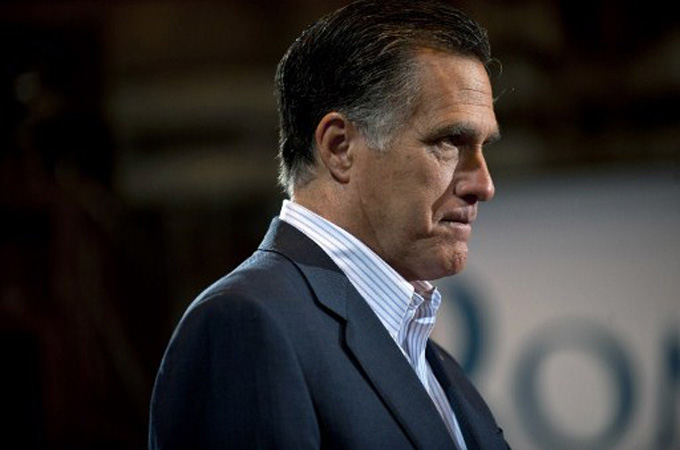A ‘multicultural GOP’ as magical thinking
Romney knows his campaign is doomed among Latino voters, but will that determine who he chooses as his running mate?

 |
| Many Republicans believe Romney is considering Cuban-American Marco Rubio, a senator from Florida, for his running mate – even though his platform does not appeal to the majority of Latino voters [AFP] |
New Haven, CT – Not long ago, the Republican Party gazed deep into the future and shuddered with dread.
By 2050, white Americans are expected to become a minority in the United States, while current minorities will become the majority. This does not bode well for a major party that for 50 years coddled the anxieties and fears of white Republicans, particularly Southerners, evangelical Christians and Old Right conservatives.
This is why Republican Party leaders have been increasing outreach among Hispanic voters, whom they believe are kindred spirits “by reasons of faith, industriousness and patriotism“, says George F Will. That is, culturally speaking. President George W Bush took the idea of a “multicultural GOP” seriously, but his efforts ground to a halt when the US Senate killed his immigration reform bill in 2007. The problem wasn’t Democrats. They mostly wanted it. The problem was Republicans. They saw it as wholesale amnesty.
Bush might have been the last Republican whose vision of the party’s future wasn’t staggeringly shortsighted. Since he left office, the bigotry and xenophobia that killed his reform bill has only intensified. And it’s not just aimed at the president. The most galling, for instance, might be from the Conservative Political Action Committee earlier this year – in which a white nationalist group hosted a panel to discuss the “failures of multiculturalism” as public policy. Neither Newt Gingrich, Ron Paul nor Rick Santorum blinked.
Mitt Romney might be the party’s best hope, because he knows his campaign is doomed without the Hispanic vote. His words. He’s trailing by as much as 40 points behind President Barack Obama in polls of likely Hispanic voters. Romney, whose sweep of five primaries on Tuesday made him the de facto nominee of the Republican Party, has yet to name a running mate, but the smart money, if you’re a Republican, is on Cuban-American Marco Rubio, the US Senator from Florida. The thinking? Like attracts like.
A typical Republican gambit, I’d say. It doesn’t matter that Rubio’s policy positions are in fact antithetical to the interests of most working-class Hispanics. Culture – ie: “faith, industriousness and patriotism” – trumps concrete and debatable things, such as policy and power, in the world of conservatism. Fingers crossed no one notices his biggest asset is his ethnicity.
Immigrant mythology
I say this while appreciating Romney’s doozy of a dilemma. He must appease the GOP’s anti-immigrant base as well as appeal to moderates in swing states such as Ohio, where voters fondly remember, and often celebrate, their immigrant heritage. Romney is already facing the scepticism of gimlet-eyed hardliners. For Romney, Rubio embodies the US immigrant mythology, and so represents a kind of ideological hair-splitting. He’s an acceptable Hispanic among conservatives. But will he be so among Hispanics?
Maybe. The question begins with the problem of perspective. For many conservatives, not just those on the fringe, race influences whom they vote for. An extreme example is South Carolina. White Southerners voted for Newt Gingrich in record numbers during the state’s primary, because Gingrich expressed implicitly: “I am one of you”. Can Rubio do the same with Hispanic voters? Probably not. The fact that he’s Cuban-American will likely attract some, but assuming he can pull mass votes assumes Hispanics vote for the same reasons that white conservatives vote. That’s not the case.
Many in the Republican Party believe, or want to believe, that Hispanics are natural “family values” conservatives. While this may be the case sometimes, it is far from clear that it is most of the time. According to a small survey by Latino Decisions, 43 per cent said they support gay marriage, while just 35 per cent of non-Hispanics do. Religion doesn’t determine voting behaviour as much as it does for non-Hispanics: 53 per cent said it had no impact at all. Moreover, a survey conducted by the Pew Research Center found that only 17 per cent of Hispanics rejected the idea of changes to the structure of the nuclear family, compared with 35 per cent of whites rejecting them (42 per cent of Hispanics accept changes to family while only 30 of whites do).
For conservatives, culture is an animating force. Recall the game-changing power of 2004’s “Gays, Guns and God“. Let’s not talk about the Iraq War or the stalled economy or other topics deleterious to Bush’s interests. Instead, let’s argue about topics that are ipso facto unarguable, such as evolution. But culture doesn’t animate Hispanics. Concrete things such as policy and power do, and this poses difficulties, even for a Cuban-American conservative.
No substance
Rubio supports laws legalising racial profiling in Arizona, Georgia, Indiana, South Carolina and Utah. He opposes providing a path to citizenship for children of illegal immigrants through the DREAM Act. He opposed the nomination of US Supreme Court Justice Sonia Sotomayor. He has since offered a modified version of the DREAM Act, but his modifications are meant to mitigate right-wing ire, not mediate real policy disagreements.
As USA Today columnist Raul A Reyes noted, before rumours of Romney-Rubio ticket took flight:
| “The problem is that Republicans are assuming Hispanics will be attracted to Rubio simply because he’s Cuban-American. But trust me, Latinos don’t vote based on ethnicity. We vote on policies. And Rubio’s on the wrong side of too many issues that matter to the Hispanic community.” |
Even so, Romney has to do something or else, as the man said, he’s doomed.
Now that he has the GOP nomination in the bag, Romney is moving to the political centre. While vetting Rubio as a possible running mate, Romney has been distancing himself from anti-immigrant conservatives, such as former Arizona state Senator Russell Pearce, who endorsed Romney, believing that he’d use the Arizona law as a model for national immigration policy. If he can pivot without outraging – and hence losing his base – Romney will have performed an incredible balancing act and signal whether his party has a viable long-term future.
John Stoehr is a lecturer in political science at Yale and a frequent contributor to the American Prospect, theNew Statesman, Reuters Opinion and the New York Daily News.
Follow him on Twitter: @johnastoehr
